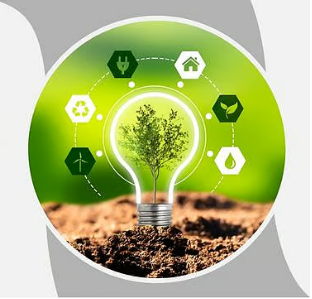Ganiyat Raji
Growing up, i have always lived to take note of our climate or weather conditions and probably know what to expect in the course of the year as the Nigerian weather is just so easy to understand or so i thought judging by the analysis i was taught in primary school. Nigeria likewise other countries in West Africa/ tropical regions have basically two seasons; the dry and the wet seasons. The month of March ushers in a light wet season (also known as rainy season) up until May and then, June, July when it rains cats and dogs. We experience a brief break in August to resume back in September till late October then, the dry season (popularly known as harmattan season) sets in. This season is usually accompanied by a lot of dryness and dust airmass from the Sahara Desert.
I understand that, Northern Nigeria experiences a more of dry season; dry air and extreme cold. However, all we’ve experienced in the last decade is a random season where it rains at will even in between the supposed dry season, there’s less/a touch of harmattan coupled with the noxious heat.
The current climatic changes being experienced has been worrisome which has brought about researches and the observations you’re about to unleash. Consumer’s International is the umbrella body for all consumers globally and has been responsible for setting the theme of discussion yearly. I’m even more excited that this year’s subject of discussion; ‘The sustainable Consumer’ is coming at the most appropriate time considering the level of oppressive heat we have had to put up with in this part of the world as currently, our electricity generation, transportation, agriculture, industries, commercial, land – use/forestry and even residential uses fossil-fuel, and it’s vital we change our model of consumption to cleaner methods.
To promote a healthy, safe and clean environment, we need to address this global issue of climatic change and biodiversity loss and to achieve this, there’s a urgent need to reduce greenhouse gas (GHG) emissions, waste and resource use from across all sectors.
A greenhouse gas (sometimes abbreviated GHG) is a gas that absorbs and emits radiant energy within the thermal infrared range. Greenhouse gases cause the greenhouse effect on plants. The primary greenhouse gases in earth’s atmosphere are water vapour (H2O), carbon dioxide (CO2), methane (CH4), nitrous oxide (N2O) and ozone (O3).
Humans have also contributed to climatic changes in some other ways such as; overpopulation, pollution, deforestation etc. Changes like these have triggered climate change and has led to poor air quality, undrinkable water, soil erosion and so on.
As we celebrate this year’s World Consumer Rights Day, we would advise we all meditate and seek possible ways to achieving a safe, healthy and clean environment by answering these questions: what will you do to be a more sustainable consumer? What/how you want businesses and government to support sustainable consumption?


